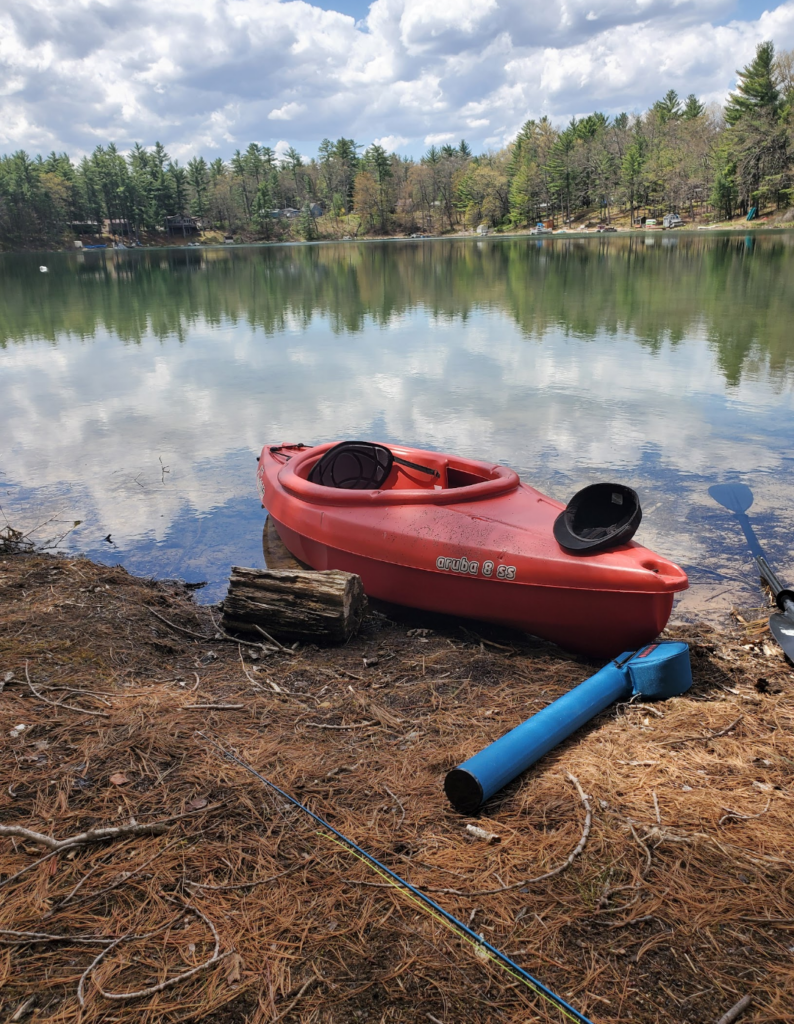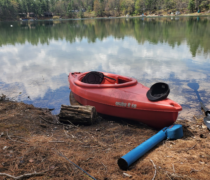With a Deep Love & Appreciation of Forests

Dr. Missy Howse-Kurtz
December 7, 2023
As a biologist and science educator, I know all of the scientific reasons that forests are important for both people and wildlife: forests provide clean drinking water to nearly half the U.S. population. Forests offer habitat for 80-percent of all land-based wildlife species. And forests store carbon, offsetting about 11 percent of our nation’s carbon emissions every year. That’s the equivalent of taking more than 24 million cars off the road.
As a hunter and outdoorswoman, who spends a lot of time exploring the Huron-Manistee National Forests, I know that forests are important for so many other, perhaps less quantifiable, reasons: forests are home to wildlife such as deer and wild turkey that allow me to fill my freezer every fall. Forests provide recreation opportunities for so many people who are eager for adventure or to create lasting family memories. And forests offer peace and solace for people who are desperate to connect with nature.
Unfortunately, Michigan’s lush forests, once a symbol of natural abundance, are facing unprecedented challenges as our climate is changing. A study conducted last year by the University of Michigan and University of Minnesota showed that even a 2.9 degree increase in temperature would mean a 50 percent increase in death rates in four of nine tree species studied. The researchers noted that the warmer temps encouraged more insects, disease, invasive species, drought and wildfire that led to the higher death rate.

In order to combat this, we must adopt widespread adaptive management practices across the 193 million acres of our National Forest System. The good news is that the U.S. Forest Service is in the process of developing a framework so that our forests thrive and remain resilient to the challenges of our changing climate. It has identified over 45% of federally managed forest land as mature. Those mature forests need to be managed in ways that they can adapt to changing conditions and be resilient to disturbances such as wildfire or harvest. Conserving old and mature forests is the best natural climate solution that our nation has.
If the Forest Service adopts an adaptable, science-based framework, it will foster climate-resilient forests that can remain healthy and productive for generations to come. The trees will be more resistant to disease, pests, and wildfire and that in turn will safeguard drinking water, improve biodiversity, increase carbon sequestration, and build a more sustainable forest economy. That’s good news for all of us.
Please join me in asking the Forest Service to protect old forest ecosystems and intervene when necessary with ecologically and locally-tailored management to enhance forest resilience. Some mature forests must be stewarded to replace old forests. Other mature forests should be managed for sustained yields for years to come. The agency should integrate Indigenous Knowledge wherever possible, incorporate adaptation into existing planning and practice, and manage forests in the context of larger landscapes and longer timeframes. Perhaps most importantly, the Forest Service must engage local communities as early as possible in the planning process.

As someone who has a deep love and appreciation for our forests, I realize it is our responsibility to act now to protect and preserve Michigan’s forests. The future of our state’s iconic woodlands depends on our commitment to sustainable practices and our ability to adapt to the ever-changing climate. If we work together on a durable, balanced framework for forest management, we can ensure that our forests continue to thrive for decades to come, providing essential services for both wildlife and our communities.






